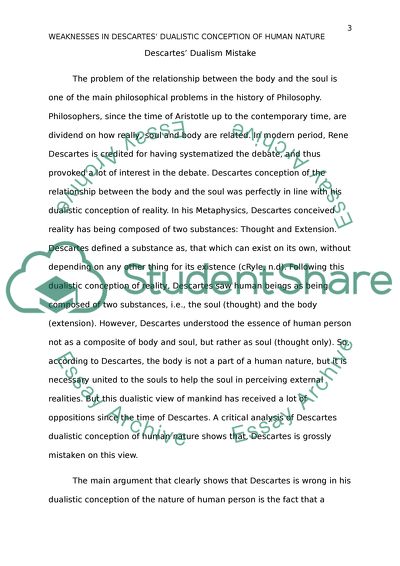Cite this document
(“Dualism's Mistake Essay Example | Topics and Well Written Essays - 1500 words”, n.d.)
Dualism's Mistake Essay Example | Topics and Well Written Essays - 1500 words. Retrieved from https://studentshare.org/philosophy/1478059-dualism-s-mistake
Dualism's Mistake Essay Example | Topics and Well Written Essays - 1500 words. Retrieved from https://studentshare.org/philosophy/1478059-dualism-s-mistake
(Dualism'S Mistake Essay Example | Topics and Well Written Essays - 1500 Words)
Dualism'S Mistake Essay Example | Topics and Well Written Essays - 1500 Words. https://studentshare.org/philosophy/1478059-dualism-s-mistake.
Dualism'S Mistake Essay Example | Topics and Well Written Essays - 1500 Words. https://studentshare.org/philosophy/1478059-dualism-s-mistake.
“Dualism'S Mistake Essay Example | Topics and Well Written Essays - 1500 Words”, n.d. https://studentshare.org/philosophy/1478059-dualism-s-mistake.


